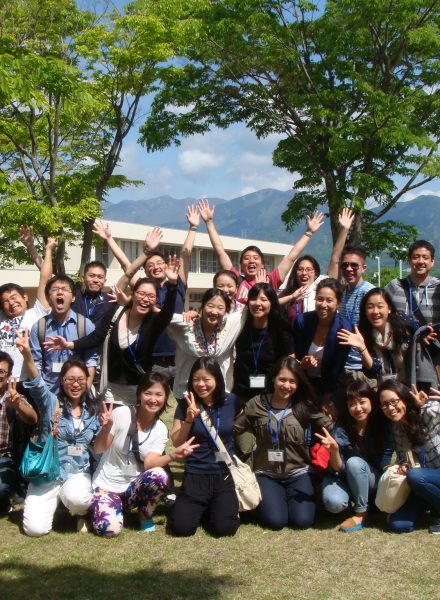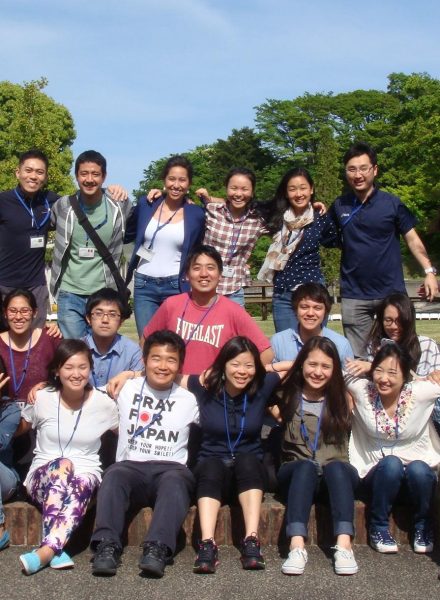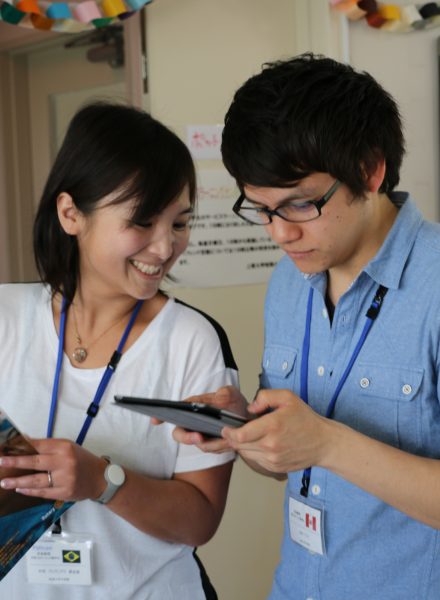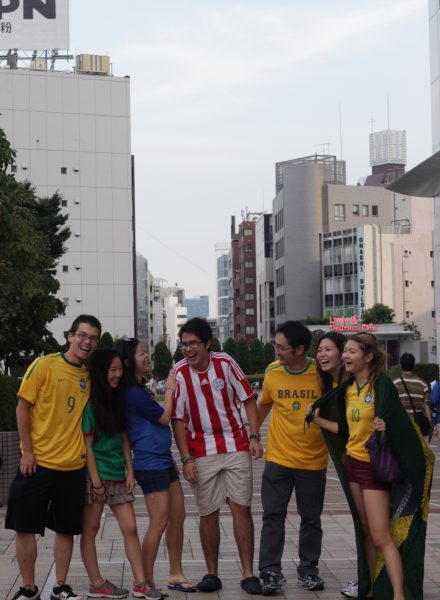Diogo Eiji Pereira Yoshida
Brazil
Lives of the Nikkei scholarship 'Dream Come True Project' students ~ Diogo Eiji Pereira Yoshida
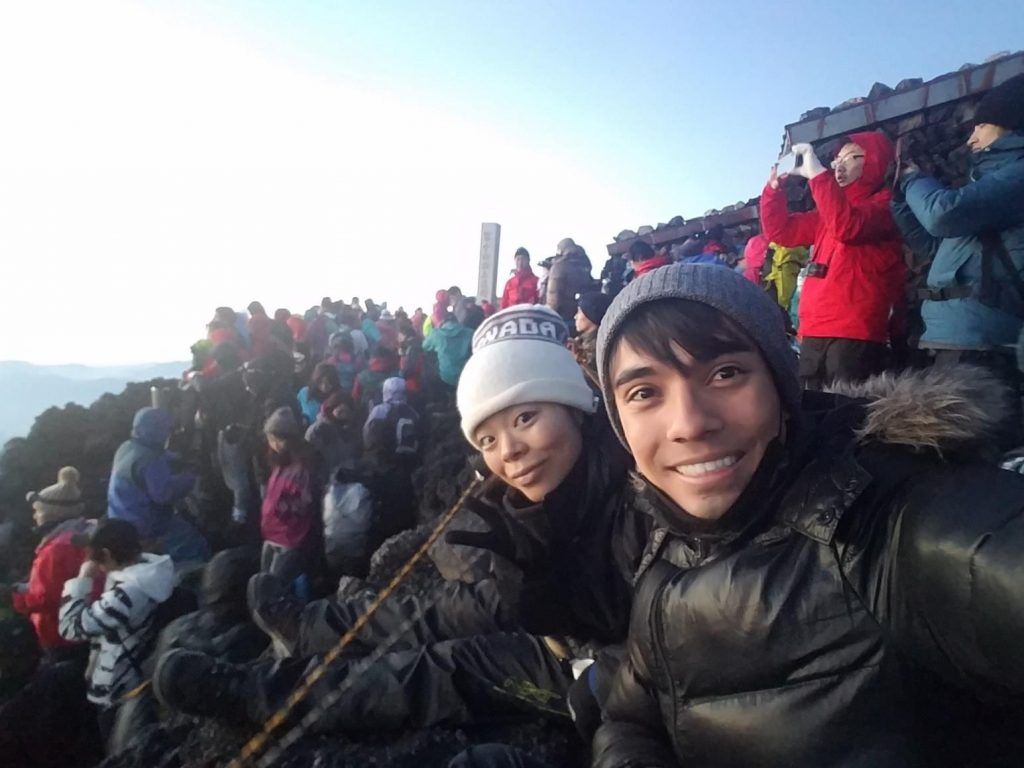
Climbing Mt. Fuji with NFSA friends
Why did you decide to study in Japan?
Doing my graduate school in Japan was my dream since I was a teenager. I always felt very connected with Japanese culture and wanted to have a profession in the future that related the relations between my country, Brazil, and Japan. For this reason, I chose International Relations as my undergraduate major and I wrote a Conclusion Paper about the Immigration of Brazilians in Japan. In order to continue the work I developed in Brazil, I came to Japan to do my master’s degree at University of Tsukuba with a mentor who is a reference in my field of studies. In addition to having this advisor, here in Japan I have easy access to the Brazilian community and I can carry out fieldwork, such as interviews and observation, that bring more credibility to my research.
How is your life in Japan?
Living in Japan has been a unique growth opportunity in my life. This is the first time I live abroad and far away from my family, so I needed to learn a lot of new things. For example, I needed to learn to do domestic work, to manage my own money, to be more responsible with my commitments, to take care of own my health. This whole process has been a challenge, sometimes difficult, but definitely today I am a much more prepared person to deal with the problems of my life than I was 2 years ago.
The Nikkei Scholarship is, in my opinion, the best option for young people who want to come and study in Japan. This scholarship is differentiated because it gives you beyond financial support, is also affords unique opportunities, such as becoming a member of the NFSA. The NFSA is the main differential of this scholarship, besides being a group of scholars, it is a family of young nikkeys who share common values and care about our own role in society. Having the opportunity to connect with so many other fellows with interests (even though in different areas) similar to mine had been enriching.
Tell us about your present study or research.
My current research topic is about the multicultural coexistence between Japanese and Brazilians living in Japan. My goal is to analyze the process of adaptation of Brazilian immigrants here in Japan and to identify how the contact with Japanese culture has added in their lives. I am currently in the final phase of my fieldwork, where I am interviewing various immigrants (older and younger generations) and asking several details about their lives in Japan. Two of the questions I ask is “What from Japanese culture do you think we Brazilians can learn? “and” What from Brazilian culture do you think we Brazilians can teach the Japanese? ” An important point of this research is to identify the differences that exist in the responses between the older generations and the younger generations, in order to enlighten the dynamics of the integration through time between Brazilians and Japanese, thus bringing in fresh results.
Did your consciousness as a Nikkei change in any way through studying in Japan?
Yes. Before I came to live in Japan, I felt that I was not a regular Brazilian. I felt a little different from my Brazilian friends who are not Nikkei, because usually I had a lot of interests, values and even different behavior. I was curious to know if here in Japan I would feel the same way. Coming here, I also realized that I was not like the Japanese, that similarly to Brazil, I also have a lot of different interests, values and behaviors of Japanese society. My conclusion, after much reflection on who I am, is that I possess a transnational identity and that I have Japan and Brazil within me unconsciously, that I actually belong to both countries. When I am in Brazil, my Japanese side seems to be more evident, and when I am in Japan my Brazilian side seems to be more evident, because I can feel a contrast with the local societies. I realized that if I use this transnational identity correctly I could become a much richer human being culturally. Before coming to Japan, I thought that being Nikkei was simply possessing Japanese blood, today I understand “being nikkey” as a condition that gives me a much broader view of the world.
What is your dream for the future?
My dream for the future is to contribute in developing projects that connect Brazil and Japan and in the creation of a more fair and equal society. After two years in Japan, I am having to opportunity to find out more about my own self, and I’ve found a big passion for giving lectures and inspiring people with my words. For this reason, my biggest dream currently is to become a very qualified university professor and a reference in my field of study. I concluded that with this profession I will reach the lives of thousands of people, contributing in the creation of a better society, and that it is the best way I can get involved and contribute with my knowledge and my researches to evolve projects, mainly in the social field such as education and culture, between Brazil and Japan.
Please give a message to students who are considering studying in Japan.
For all those who wish to come to Japan to study, I recommend firstly that they be aware that there will be many challenges. However, these challenges are essential for you to become a stronger and more mature person, so do not give up, this is a condition to grow. Regarding your studies, I recommend doing some research about mentors in your area and on the possibilities of developing your research topic here. Japanese universities, including public universities, tend to have a good structure, so you’ll probably end up finding a good opportunity. Finally, I recommend that you open your heart when you get here, allow yourself to learn new things, and observe and reflect a lot on not only what is around you, but also about what is within you. This way, you will open your worldview and this experience in Japan will be a great boost in your academic, professional and personal life.
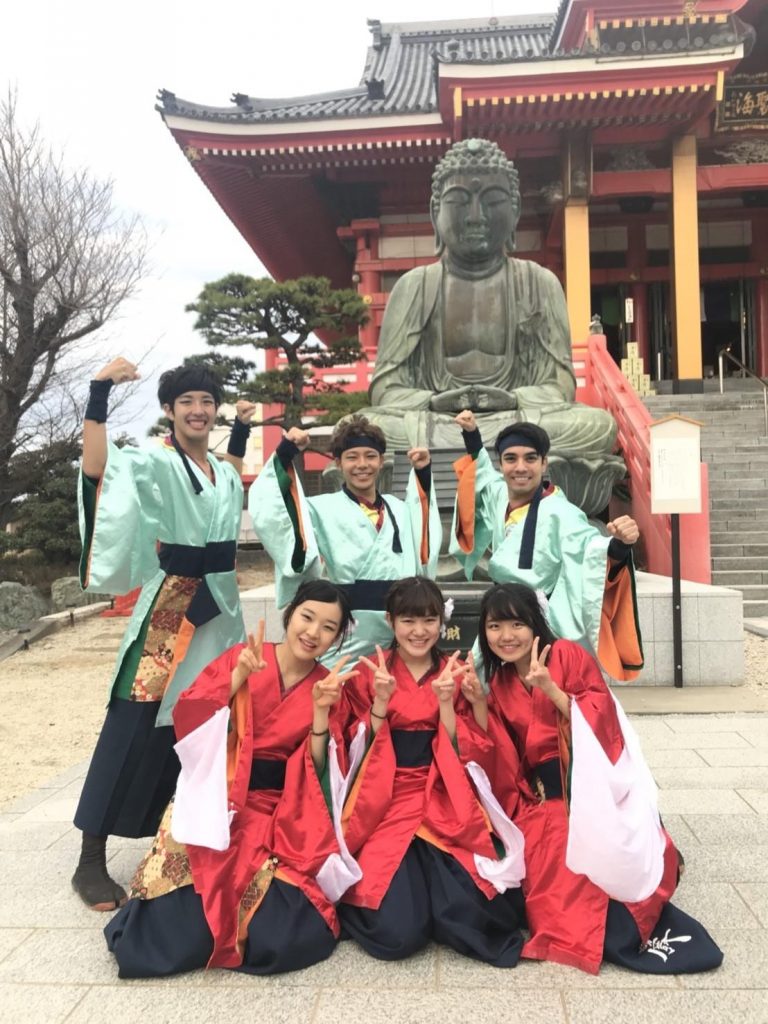
Yosakoi Team of University of Tsukuba 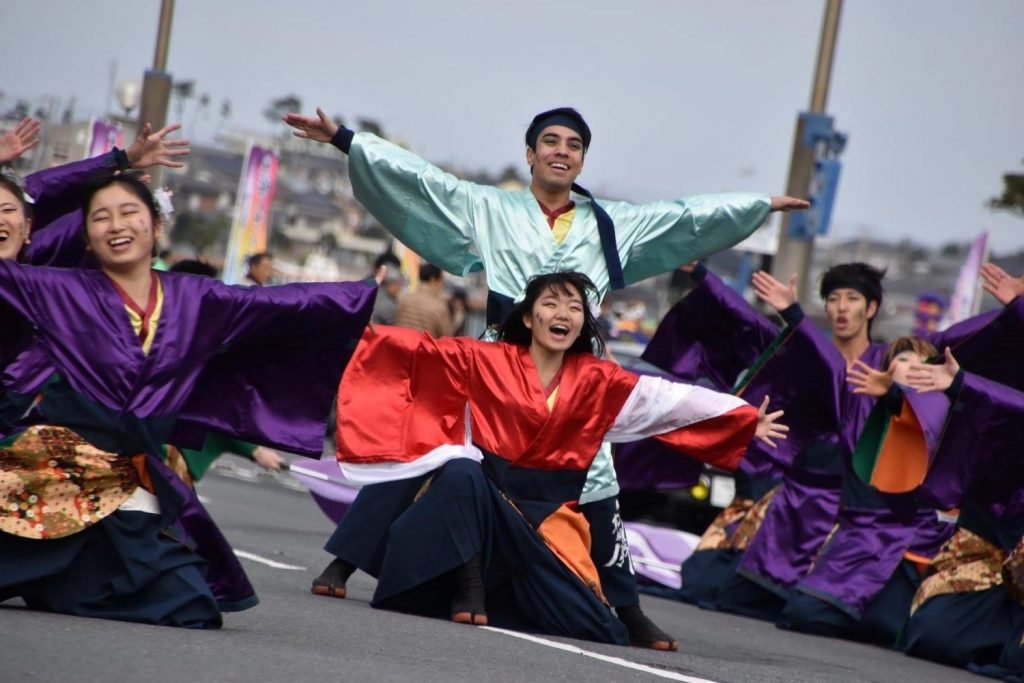
Dancing Yosakoi, performing Hikoboshi

